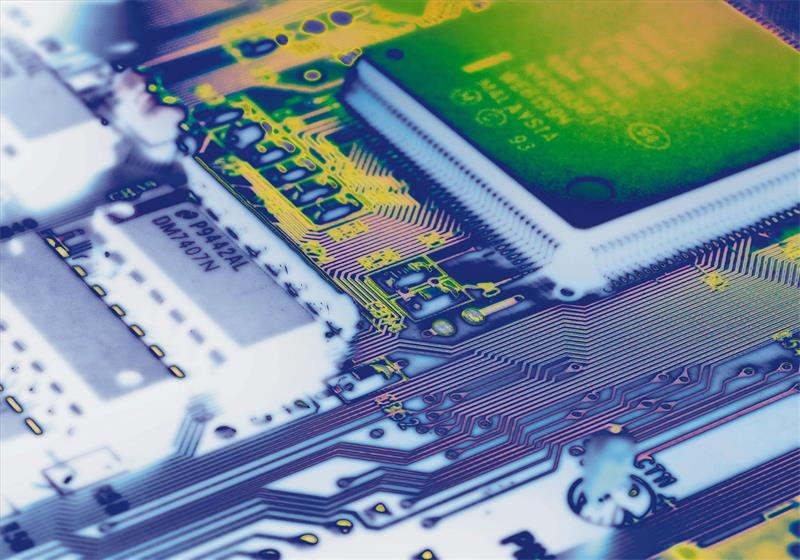According to foreign media reports, Intel has made progress in a technology field called spintronics. As traditional chip technology gradually loses momentum, this technology can replace traditional chips to accelerate users'mobile phones, laptops and smart watches.
On Monday, researchers at Intel and the University of California, Berkeley, announced their progress in spintronics, which can reduce the size of chip components to one-fifth of their current size and reduce energy consumption by 90-97%. Once commercially successful, this technology can provide a huge impetus to the chip industry, which has experienced flat performance growth in recent years.
The team's research is a logic element called the Magnetoelectronic Rotating Orbit (MESO). Specifically, the element uses lattices of oxygen, bismuth and iron atoms to provide favorable electromagnetic properties for external forces to store and read information. The power required for this component is much less than that for CMOS transistors. Researchers also say that because they can retain information without activation, they can also provide more energy-efficient sleep patterns when the device is idle.

Billions of dollars in processor sales are at stake -- not to mention those that rely heavily on computer cores -- and countless researchers are struggling to find new chip technologies. For decades, chips have relied on complementary metal oxide semiconductor circuit (CMOS) technology. Although CMOS electronic components still follow Moore's law, the limitations are inevitable as the size of components approaches the size of a single atom.
Spin, as a quantum mechanical property, enables electrons to move like magnets with North and South Poles, so data can be stored and processed by manipulating the direction of the field. The paper published by the Intel-Berkeley team focused on the latter idea, using spintronics to implement computer logic.
Recent improvements in the speed of traditional chips have largely benefited from chip engineers'investment in dedicated chip engines, such as those for graphics or AI computing. However, a significant increase in the speed of general computing will help to speed up the operation of a wider range of software.
- Share
- Return
- Prev:None
- Next:IBM rolls out 8-bit analog chips with phase-change memory
